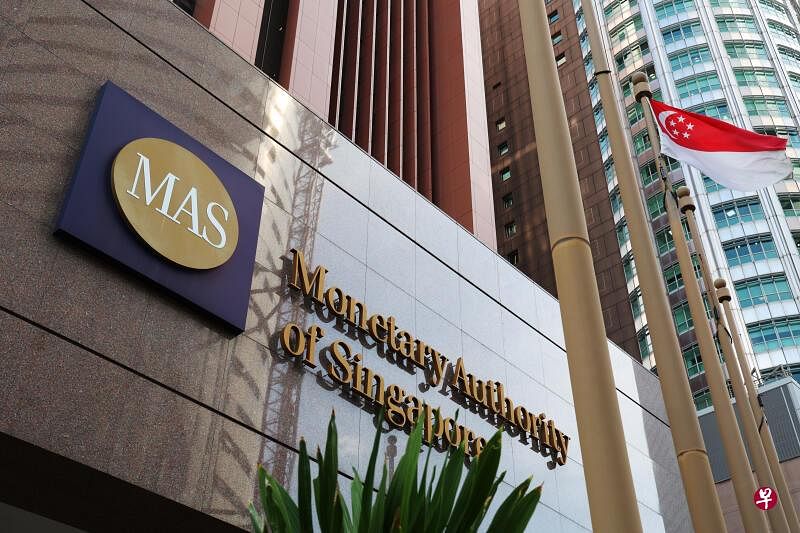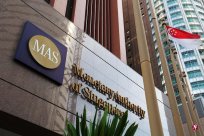
The crown disease epidemic, geopolitics, and macroeconomic risks have not shaken Singapore's position as a global financial center and wealth management center.In the turbulent international environment, Singapore has become the first choice for more foreign companies and the rich, and the momentum of foreign investment in Singapore has remained strong.
According to the data of the Singapore Financial Authority, Singapore's asset management scale last year was as high as 5415 billion yuan, an increase of 16%over 4654 billion yuan in 2020, and the net inflow funds reached 448 billion yuan.On the other hand, as of the end of 2020, there were about 400 family wealth management office (referred to as home office) established locally, and at the end of last year, it increased to about 700.
The Financial Management Bureau revealed that in the first four months of this year, it approved more than 100 applications for households.According to industry insiders, more high -net -worth those and wealthy families apply for settlement in Singapore to promote the waiting time for approval from about four months in the past to at least eight months.
In addition to asset management and home, Singapore also attracts more foreign companies to set up regional headquarters here.According to data from the Economic Development Bureau, 46%of the regional headquarters in Asia settled in Singapore, and 59%of the regional headquarters established by the multinational enterprise engaged in the technology industry were stationed in Singapore.
Singapore's unique geographical location and international connectivity are the basic conditions for attracting foreign investment.In addition, Singapore's political stability and policies are predictable, pro -business environment and regulations, and high -quality labor teams are also the advantage of foreign investment.
On the other hand, when geopolitical disturbances and the continued counterattack of the epidemic, Singapore provides a safe business and living environment, and it is also the guidance of many foreign capital to set up regional headquarters and wealthy people to move to Singapore.
According to a research from an investment consulting agency in London, due to the changes in war or policy, many high -net -worth those are ready to migrate to a safer place.It estimates that this year, a rich man with a net asset value of 1 million US dollars or more relocated to Singapore, 87%more than 1500 people in 2019 before the epidemic.
The more unstable the external environment, the more highly highlights the role of Singapore as a financial center and wealth management center.However, the influx of large amounts of foreign funds is also a challenge to this projectile island in Singapore.
Meng Wenneng, director of the HKMA, said in an interview with the media last month that when a large amount of funds have entered any country, the government should worry.One of the concerns is that the funds flowing into the real estate market have driven rising house prices.He pointed out that the Singapore regulatory agency did not prevent funds from entering, but instead launched real estate cooling measures to prevent overheating.
Meng Wenneng stated in the interview that Singapore's capital, financial and banking systems have the ability to deal with the flow of large amounts of funds.Even so, the rapid flow and outflow of a large amount of hot money, and the high leverage investment or speculation of non -bank financial institutions may affect the stability of the financial market.
The Financial Management Bureau pointed out in the annual financial stability assessment report released by the HKMA on November 25 that the "cash" incident in the global stock disaster in March 2020, the high -leveraged investment in the ARCHEGOS family wealth office in the United States in 2021, andRecently, the British Retirement Fund once faced the danger of liquidation. If non -bank financial institutions have suddenly tightened liquidity, they may affect banks and major enterprises.
The scale of fund management of Singapore's alternative assets reached 1230 billion yuan last year, an increase of 30%over the previous year.They include private equity, risk venture capital and hedge funds.These non -bank financial institutions generally adopt high -leverage investment, unless they are in the situation, they are not in the sight of the regulatory agency.
From the front point of view, the influx of foreign funds can give full play to the cluster effect and further strengthen Singapore's position as a financial center and wealth management center.It brings more high salary job opportunities to the Chinese and enhances Singapore's international competitiveness.At the same time, the flow of hot money may also push up the prices of assets and rare items and affect the stability of the financial market.
We expect that foreign funds can take root in Singapore, play the role of corporate citizens, and eliminate the anxiety of Chinese people's influx of foreign funds.As the Deputy Prime Minister and Minister of Finance Huang Xuncai said, Singapore hopes to establish a stronger long -term partnership with the family office.The house office is not only an investor, but also an important partner of the country's construction. It should assist in promoting the inclusive growth of Singapore by supporting innovative enterprises, promoting climate transformation and strengthening the development of charity.


